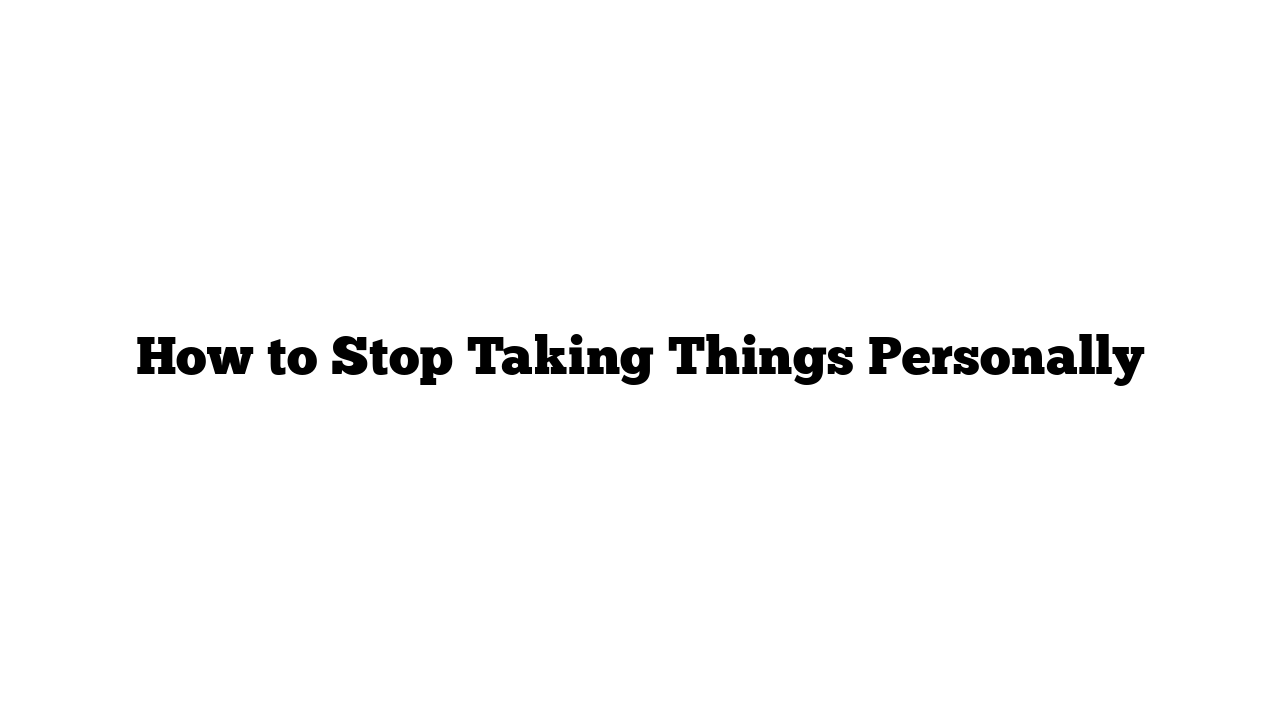Taking things personally can be a tough habit to break, but understanding why our brains do it can help us move toward healthier reactions. Here’s a friendly guide to help you stop taking offense and build a more secure sense of self.
Why Do We Take Things Personally?
Our brains often react to perceived threats in ways that seem natural but can be harmful. This reaction is like a defense mechanism—think of it as a survival instinct. When someone says something that might be offensive, we can easily assume they are attacking our self-worth or character. For example, if a coworker makes a comment about your work, your mind might instantly jump to thoughts like, “They think I’m incompetent!” This can lead to feelings of anger or insecurity.
Steps to Stop Taking Things Personally
- Clarity
- Check Your Stories: Every situation has facts and our interpretation of those facts. Often, our interpretation—our “story”—is what leads to emotional reactions. For instance, if someone says, “You’ve gained weight,” you might think, “They’re rude!” But this thought often comes from our own insecurities. Instead, consider that the person might just be expressing concern or a cultural norm.
- Get Curious: Slow down your reactions. Instead of jumping to conclusions, ask yourself, “What might be going on for them?” This shift can help you see the situation more clearly and prevent you from taking it personally.
- Boundaries
- Know What You Can Control: Understand where your responsibility lies and where it ends. Sometimes, people’s actions are more about them than about you. If someone is having a bad day and snaps at you, it’s likely not about you. Recognize that you can’t control how others act.
- Seek Feedback: If you think their feedback is valid, be open to it. Ask yourself, “Is there something I can improve?” This openness can lead to personal growth, helping you feel more secure in who you are.
- Build Self-Worth
- Focus Internally: Instead of trying to control how others perceive you, concentrate on what kind of person you want to be. Identify your values and work towards them. When you define your self-worth based on your values rather than others’ opinions, you’ll feel more secure.
- Practice Assertive Communication: If someone’s comment stings, take a breath and respond thoughtfully. You might say, “Thanks for your feedback,” or ask for clarification. This gives you space to process without reacting impulsively.
Final Thoughts
It’s normal to feel hurt or offended sometimes, but understanding these steps can help you create a healthier mindset. When you practice clarity, set boundaries, and focus on building your self-worth, you can stop taking things personally. This approach will lead to stronger relationships and a more confident you!
If you’ve ever found yourself taking offense, consider sharing your experience. Understanding where these habits come from can help all of us grow!
